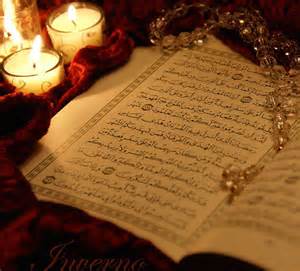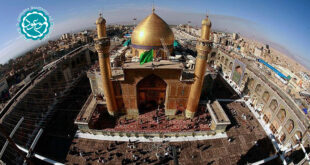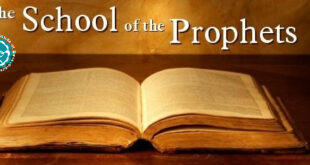The Holy Qur’an emphasizes the power of God through repetition of qualities such as qādir (able) and qadīr (all-powerful), and thus it regards God as omnipotent. In addition, the phrase “God is capable of all things”31 and similar phrases have been used many times over in the Qur’an—all of which inform of the generality and illimitability of divine power.
In various Qur’anic verses, we encounter a type of reasoning regarding the boundlessness of God’s power. As an example, the Qur’an regards the creation of the heavens and earth as a sign of God’s ability to resurrect the dead:
“Have they not seen that Allah, who created the heavens and earth and has not been wearied by creating them, is able to resurrect the dead? Yes indeed, He is capable of all things.”32
In addition, the generality of God’s power is emphasized in many Hadiths. According to one Hadith, Imam Ṣādiq (‘a) declared:
“He is All-encompassing in knowledge and power with respect to His creations… All things are equal for Him in His knowledge and power.”33
4. Divine Life
God is living. Like knowledge and power, this attribute can also be ascribed to both God and some of His creations. Through contemplation of the uses of this attribute, we realize that a living being is a being that possesses active volition and awareness.
Thus, in definition we can say: “Life is a type of existential perfection which manifests such that the creature possessing it engages in volitional actions, and has knowledge and awareness.” According to this definition, activity and awareness are signs of life, and lack of these qualities in an object shows that object to be lifeless.
With regard to this explanation, the fact that God has life means that the Divine Essence possesses a specific perfection that affirms His knowledge and actions. Naturally, in order to uphold the holiness and sublimity of God, we must purify this attribute of all limits and restrictions perceived in the life of created things.
For instance, in natural creatures such as humans and animals, life is accompanied by growth, consumption of food, reproduction, and movement such that these things signify life in these creatures. However, we must not regard these qualities as necessary to life and we must not assume that life is absolutely linked with these qualities; rather, these qualities are only necessary in natural beings. In fact, divine life is pure of all limiting properties, which are not befitting of the divinity of God. Divine life is inherent, past eternal (azalī), future eternal (abadī), and immutable without it being associated with the necessities of natural life such as growth, consumption of food, etc.
Divine Life according to the Qur’an and Traditions
There are many Qur’anic verses wherein God is accredited with the quality of life:
“He is Allah; there is no god but Him, the Living, the Everlasting.”34
“He is the Living; there is no Allah but Him, so call upon Him purifying your religion for Him, wholeheartedly.”35
The phrase, “هو الحيّ” (He is the Living)—according to Arabic grammar36—indicates the exclusivity of life for God and holds that true life is unique to God. Bearing in mind the fact that inferior degrees of life exist in other beings and that essentially, the Qur’an introduces God as the life-giver of all beings,37 it seems that the signification of this exclusiveness is that only divine life is inherent, and past and future eternal, while lives of all creatures are temporary and ‘on loan’ from God.
The inexhaustibility and eternality of divine life has been stressed in various Qur’anic verses:
“And put thy trust in the Ever-living who dies not.”38
In various Hadiths, the truth of divine life and its differences with the lives of creations are enumerated. The following is a profound and precise Hadith from Imam Kāẓim (‘a):
“And God is living but not a life that has come into being; His life does not have an [independent] existence with which to be qualified; it does not possess limitative conditions or a location in which to remain or a place in which to abide; rather, His life is inherent.”39
This valuable Hadith reveals that in contrast to the lives of His creations, divine life has not come into being; on the contrary, in adherence with the past eternality of the Divine Essence, His life is also past eternal. Life is not accidental and separate from His essence; rather, it is one with His essence. Thus, in accordance with His essence, it is illimitable and boundless.
5. Past and Future Eternality
God is past and future eternal.40 Most monotheists believe that God is a past eternal being, meaning that He has always existed and, in the past, there was no time in which He has not existed. Furthermore, God is future eternal—meaning that no time will come when He does not exist.
With regard to the opinions of Moslem scholars, there are evidently two perspectives in the interpretation of past and future eternality. According to the first exposition, God exists in all times; He has existed in the past, He exists now, and He will exist in the future. This explanation necessitates that God be a temporal being, restricted to the confines of time, and subject to the passage of time. In contrast, the second interpretation states past and future eternality. Basically, this means that the essence of God transcends the framework of time while being immanent throughout time and all temporal beings.41 According to this perspective, saying that God has always existed or will perpetually exist in the future, is a careless and negligent statement.
Even though the general meaning of past and future eternality is compatible with the first interpretation, it would appear that the second interpretation presents a more precise and in-depth perspective because the absoluteness of the Divine Essence signifies that His essence is not restricted to any limits or conditions—even time. To state this differently, time—with regard to the prevailing definition—is considered a quality of mobile and material creatures while the Divine Essence is pure of materiality and motion.
Accordingly, when speaking of the past and future eternality of God, we must bear in mind that the exact and acceptable meaning is that Divine Essence transcends time and that He surpasses all temporal beings. Naturally, we do not deny the fact that as long as we are restricted to the natural and physical world and have a temporal existence similar to all other natural creatures, it is difficult to imagine an ultra-temporal entity—for whom the past, present, and future are the same.42
Past and Future Eternality of God in the Qur’an and Traditions
The terms “azalī” (past eternal) and “abadī” (future eternal) are not mentioned in the Holy Qur’an; the Qur’an has used other terms to indicate the past and future eternality of God. For example, the Qur’an introduces God as the “First” [awwal] and “Last” [ākhir]:
“He is the First and the Last, and the manifest and invisible; and He is aware of all things.”43
Although exegetes have interpreted the two terms “awwal” and“ākhir” dissimilarly, it appears that the meaning behind these terms equates to past and future eternality and this interpretation has been endorsed by several Traditions. In a sermon entitled “Apparitions” [Ashbāh] Imam ‘Alī (‘a) states:
“[God] is the First who has no before in order that there be something before Him, and He is the Last who has no after in order for there to be something after Him.”44
In another Hadith, Imam Ṣādiq has stated:
“He is the First without there being anything before Him or a beginning preceding Him, and He is the Last without having an end Himself… He has always been and always will be, without having a beginning or end.”45
These statements show that “First” and “Last” mean that with regard to God no before or after can be imagined, He has no beginning nor end, and nihility neither precedes nor follows Him.
Several Qur’anic verses also emphasize the eternality and indestructibility of God:
“All things perish except His Face.”46
Many exegetes believe the intent of “God’s Face” is the Divine Essence. Accordingly, this verse implies the perpetuity and eternality of God.
 Mouood Mouood English Edition
Mouood Mouood English Edition




